Displaying items by tag: Conditions
Eleven Races in Busy Irish Sea Offshore Schedule
Chairman of ISORA Peter Ryan sets out the 2011 programme for ISORA that kicks off on April 7th with an introductory evening on April 7th.
Spring has come and the days are getting longer. It is now time to be thinking about offshore racing again. The first race is on the 30th April from Dun Laoghaire to Holyhead.
I attach again the latest Race Schedule, Notice of Race, Conditions and Entry Form for 2011. I also attach details of the proposed "Offshore Introduction" night for offshore racing on the 7th April. Even if you are experienced, you can add to the proceedings or just come for the reception after.
There is an extensive list of eleven races in the schedule. The types of race vary greatly to give a variety of racing experiences. There are Day Races, Night Races, Short Cross Channel Races, Medium Cross Channel Races, 100 mile Lyver Trophy Race and "The Dingle Skellig Hotel D2D" – Dingle Race. There is racing for IRC, IRC No Spinnaker and 2-handed classes.
This season, if the number of entries permits, we will be running a Classic Class in both Class 1 & 2. The boats eligible for the Classic Classes will be selected by the Sailing Committee before the start of the first race and the selection will be based on the boats performance / capability during the previous season. It is hoped that this will provide a much greater spread of prizes. The rating break for Class 1 and Class 2 will be decided at the same time.
The Race schedule has been carefully selected to ensure the maximum amount of sailing and social life is obtained. The usual "get together" will take place before and after each race. This season we have some additional attractions:
If desired, the race on the 28th May from Pwllheli to Wicklow can be followed by boats taking part in the "Turbine Race" (see www.arklowsc.com on Sunday 29th. This race starts and finishes in Arklow, 10 miles from Wicklow. This will allow the usual "get together" in Wicklow on Saturday evening and another one in Arklow on Sunday after the Turbine Race. This is the UK Bank Holiday weekend and will allow the UK boats time to return home on Monday!
After taking part in the "Dingle Skellig Hotel D2D Dingle Race" on the 11th June. Please note that a second separate entry to the NYC is required if taking part in this race in the series. After a few relaxing nights in Dingle, you can wander around to take part in the "ICRA Championships" in Crosshaven before making your way to Kinsale for the "Sovereign's Cup". The Dingle Race is a qulaifier race for the Fastnet Race.
The Lyver Race on the 1st July is a Feeder Race to the Volvo Dun Laoghaire Regatta from the 7th-10th July – a great few days sailing in Dublin Bay. This race is a RORC qualifier for the Fastnet Race. Again, seperate entry is required for the Liverpool Yacht Club sections of the event.
The Sunday Race on the 14th August will take place directly after the start of the Solitaire du Figaro fleet from Dun Laoghaire. If possible we will set a course to follow the fleet down the coast. For visiting boats to Dun Laoghaire, the Figaro fleet will arrive in Dun Laoghaire on the Wednesday 10th August and there will be a festival in Dun Laoghaire for the couple of days to celebrate the event. There will be great craic in Dun Laoghaire for those days.
You may not have noticed but the ISORA website www.isora.org has been upgraded and will become very active this year. There is a "Crew Register" and a "Buy and Sell" section in the "Forum" page. I would encourage everyone to register for this facility and use it to get crew for races or for crew to get boats. Try the website out.
The "ISORA Introductory Evening" in the NYC on the 7th April. The purpose of this is to encourage those boats who are thinking of taking part in Offshore Racing by a series of talks about what is involved in this type of racing. I will also use this session to demonstrate the use of the new website's "Crew Register". I also hope to issue detailed instructions by email on the use of this facility. The session will be followed by a reception where people can solialise and relax. "Prof" O'Connell and Mick Liddy will be talking at the event. I will also be encouraging participation from the audience. It will be a great night so please come and bring a friend.
I look forward to receiving your entries very soon. I would appreciate it if you could also spread the good news about ISORA and Offshore Racing.






























































